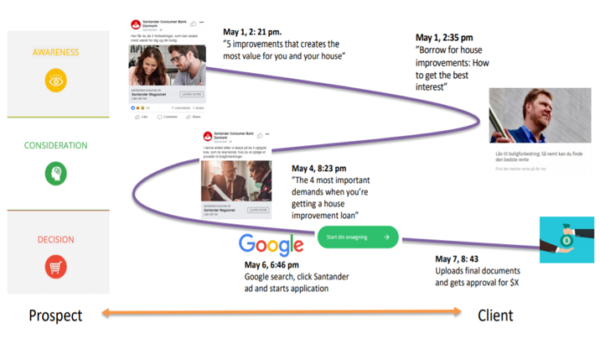Native Advertising – Part 2
Need a quick background to get the basics of native advertising? Check out Part 1 of our series, then come back to this article.
Native advertising, like any media channel, is just one piece of the marketing mix and should not be considered the silver bullet towards marketing success. Each media type has its role in driving traffic, building brand awareness, increasing brand awareness and driving sales—so, where does native fit in?
Native is the best method to help viewers understand how your brand/product helps meet their needs and wants—but in editorial form, not a punchy ad. Remember, this should look like the content that they are already consuming within the platform/website. Consider it for these phases:
- Attract: Your product/brand may be the perfect solution and fit for a consumer but they have not been introduced to your brand previously. What type of content are they consuming? What are they passionate about? How can your brand/product help improve their life? Create content that answers these questions and utilize native advertising to tease this relevant content.
- Convert: If you have an audience who has expressed interest but hasn’t pulled the trigger to provide their information (to create a lead) or make a purchase, then it’s time to identify what is holding them back and write content to overcome those hesitations. The benefit of digital targeting is that you can target this audience with a completely different message than the ads you are using to attract prospects.
- Build Advocates: You already have a customer, but how do you keep engaging with them between purchases to stay top of mind? Native ads allow you to remind them that your brand/product is relevant (and fits their needs) because they are engaging with it as they explore their interests on a regular basis. Again, with digital targeting, you could identify and show different content to loyal fans vs. prospects and leads.
Once you determine your audience and goal, it’s time to think about the ad and content.
- Editorial skills are key. It’s all about the story.
- Don’t be afraid to entertain. The viewers aren’t asking for an ad, this is their leisure time.
- Tap into your audience’s passion points and interests. It’s about them, not you.
- Be clear about who/what you are, don’t be deceptive.
- Back up your message with truly engaging content and aligns with what you’ve teased. Content could be in the form of an informational blog post, short video, fun quiz, a series of memes, etc. The sky is the limit.
Here’s a great example of using a variety of content to help move a prospect through the buying lifecycle1:
Ready to get started? Contact Angela Brock at 918-938-7912 or [email protected] to discuss your business challenges and how AcrobatAnt can help you reach your goals.
1https://contentmarketinginstitute.com/2019/02/about-native-advertising/
AcrobatAnt Marketing & Advertising
AcrobatAnt.com
502 S Boston
Tulsa, OK 74120
918-938-7901




